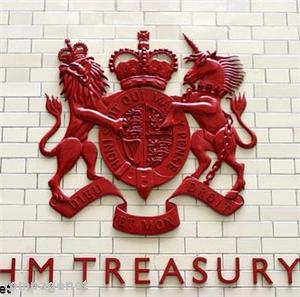The cost of oil will hand the Treasury a windfall in extra tax this year while motorists endure record petrol prices.
The Government will collect about £12 billion in tax on North Sea oil revenues – 20 per cent more than ministers had forecast, according to latest figures.
The prospect of the significant tax gain will intensify pressure on David Cameron to deliver on his promise to protect drivers from rising prices at the pumps.
The Prime Minister said yesterday that he understood the “pain” of motorists who face paying more than £1.30 a litre, or £70 to fill up the average family saloon. However, he did not make a firm commitment to introduce a fuel duty stabiliser – a Conservative manifesto pledge.
The Office for Budget Responsibility, the Treasury’s official forecaster, estimates that every $1 rise in the price of a barrel of oil earns the Government an additional £150 million in revenue over a year from the North Sea oil industry.
[ad]
The Treasury’s economic plans in November were based on an official projection of $85 a barrel. However, rapidly increasing demand for oil on the world markets has pushed the price above $98 a barrel.
According to calculations by The Daily Telegraph, North Sea oil revenues for this year will, therefore, be £1.95 billion above the £9.8 billion the Treasury had expected.
The eventual windfall could be even higher, with some analysts expecting prices to burst through the $100 a barrel barrier within days.
Higher oil prices are also likely to earn the Government another £150 million in VAT, according to analysis of the OBR data. Revenue from fuel duty itself often does not rise when forecourt prices do because motorists use their cars less.
The Treasury argues that higher oil prices do not automatically lead to higher overall tax revenues because they generally result in slower economic growth, which affects tax income in other areas.
However, motoring organisations said the figures suggested that the Government could afford to help limit the impact of rising oil price rises on Britain’s 35 million drivers.
“Soaring oil prices generate a tax windfall for the Treasury that would help to take the pressure off drivers facing record prices for petrol and a near-record for diesel,” said Edmund King, the president of the AA.
“Motorists are increasingly unable to afford higher pump prices and increases in fuel duty are inflicting more pain for no gain while drivers cut back on fuel consumption.
“Using some of the oil windfall to halt or even reduce the fuel duty burden would not only ease the plight of drivers, but help consumer spending and reduce growing anger at the fuel tax burden.”
The next fuel duty increase, the third since the Coalition took power, is due in April. At one penny above inflation, it is likely to add at least another 3p to the price of a litre.
Ministers have been urged to shelve the rise, which could push a litre of unleaded up to £1.36 by Easter.
Mr Cameron hinted that the Coalition was considering the fuel stabiliser, a mechanism that would automatically cut fuel duty as oil prices rise.
Help for drivers could come in March’s Budget, he signalled.
George Osborne, the Chancellor, has previously cast doubt on such a policy, but Mr Cameron said the Treasury was considering ways to “share the pain” of high fuel prices.
“We have to look very carefully at exactly how much more revenue that does mean for the Treasury, what the effect is of a higher oil price,” he said. “But should we look at ways of trying to share that pain, to share that burden? Yes, that’s absolutely what we are doing.” He added: “That is exactly what the Chancellor and the Treasury are doing. Obviously, there is a Budget in March when those sorts of decisions can be looked at.”
The last government froze fuel duty twice. The first was against a backdrop of the fuel protests in March 2001, when it was fixed at 45.82p a litre on unleaded until October 2003. It then it rose to 47.1p a litre, where it remained until December 2006 when it rose to 48.35p.
Further regular increases were then followed, in the 2009 Budget, by the reintroduction of the fuel duty escalator, which pushed the tax up to 1p above the rate of inflation.
The Coalition continued with the escalator it inherited, although in his first Budget Mr Osborne asked the Office for Budget Responsibility to examine how a stabiliser might work. It concluded that, while rising oil prices would increase the Treasury’s revenue from the North Sea, there was a risk that it could lose out as the economy contracted and motorists cut back on car use.
This, according to some experts, was seen as strengthening the case for introducing a stabiliser.
Mr Cameron said: “I am not pretending this is easy. It is difficult. A rising oil price also has some bad effects on your economy and can reduce revenue.”
Maria Eagle, Labour’s transport spokesman, said: “If the Tory-led government won’t listen on VAT then they should at least do something about this year’s fuel tax rises so motorists don’t face this double whammy on petrol prices.”
Stephen Glaister, director of the RAC Foundation, admitted that ministers would find it hard to introduce a stabiliser policy. “If the Chancellor really wanted to reduce drivers’ bills he could simply cut the level of fuel duty,” he said.
Source and thanks Telegraph




